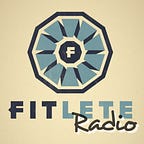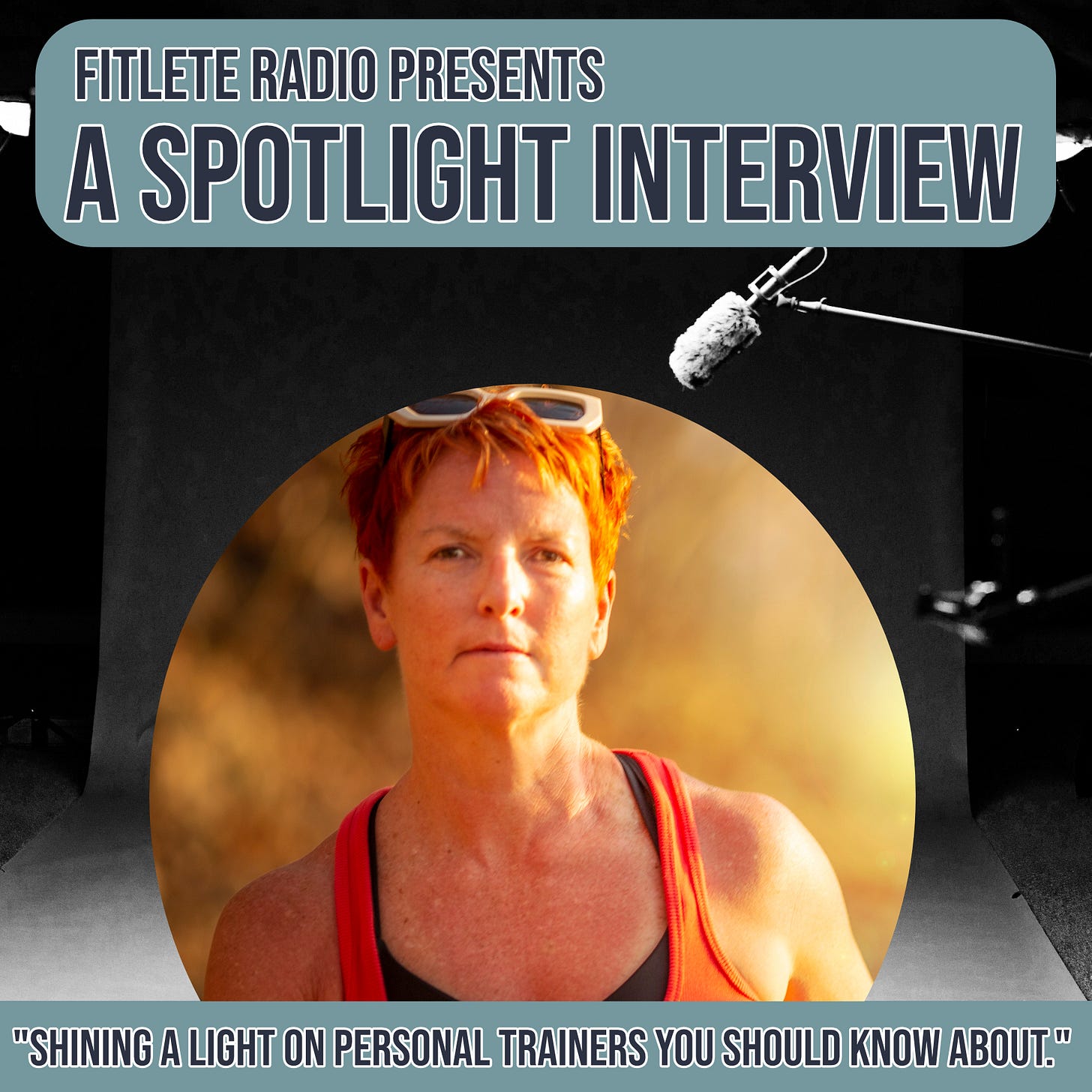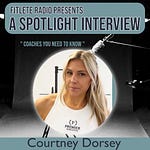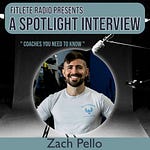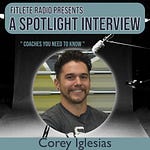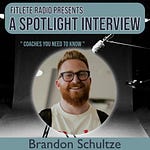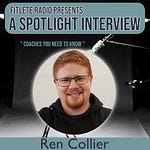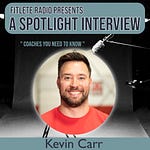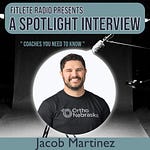GEORGE: Introduce yourself and tell us a little about what you do and your background.
Alison: My name is Alison Katschkowsky and I am a 30-year health and fitness entrepreneur. I've been in the industry since I was a college student where I started teaching group fitness and cleaning machines for $5 an hour at the time in a very large public gym, which I think for those of you listening that are in the old category like me can probably remember those days. That was really the best way that we had to serve our clients was in person. And so being that my decision to go into fitness was really a plan B and has subsequently rewarded me every single year since then is that this really is my plan B that turned into a plan A. I started out working with individuals on a one-on-one basis and in groups before I opened my first brick-and-mortar studio. And I built a small team, was incredibly successful, and then about 10 years ago started pivoting more into the business space. My expertise has always really been in getting really creative on how to create different ways to make money. I can remember my very first business was a lemonade stand on the golf course when I was a child, and I needed to make some extra money for a trip that I wanted to go on. And my parents had told me that I could go, but that I needed to earn the money to go. And so I was never ashamed or shy to do that. In fact, I always sort of saw it as a challenge. And so what's really surprising now that I've been in the industry as long as I have and now that I'm for the most part a business coach is that I love showing other entrepreneurs the hidden opportunities where they can actually make money in their business. Now, because fitness is my first love, I still work with a handful of private clients. My expertise mostly lies in functional, everyday fitness, helping you stay fit, healthy, energetic for the lifetime, and avoiding injury. Most of the people that I work with are over the age of 55. They've been around the block a few times, and they're looking to, quote unquote, keep all the parts moving in the right way. And so that's really my job. And I love being creative and finding a customized, personalized approach that really works for them so that they don't feel like they're just being pigeonholed into something that works for everybody else. So that's what I do.
GEORGE: Tell me a funny or interesting story about yourself that help's us get to know you as a human.
Alison: I love this question because I feel like it's so important as professionals that we show different sides of us, right? It makes us more human in a world that seems like it's becoming more and more reliant on technology and being robotic. The story I'm going to tell you is one that, it's a story where I like to say how I ended up where I am. It's really the plan B that turned into a plan A for me. When I was a junior high school student, I decided I wanted to become a physical therapist. I had watched a friend of mine rehab a pretty serious shoulder injury and she was able to get back in the pool and compete at a national level. I was blown away and I thought that is what I want to do. Being an athlete and somebody who was already into fitness, it was really not a hard decision to make. So I planned my entire college career around doing that. Then when the time came to apply, of course it's very competitive, I had great grades, recommendations, the whole thing, and I got waitlisted. So I reapplied and I got waitlisted again. I really started to think, okay, I'm really going to need something, I think, to do so that I can actually go to PT school. That was the great irony in the room, is that I felt like I needed to actually do more to get in. So I decided on going to graduate school in exercise science and in fitness, which is consequently what has become my career. The funny thing is, is that not only was I accepted right away to start into my program at East Carolina University, which is where I subsequently got my master's, I never really looked back after that first year. I started getting opportunities that fell in my lap, literally, and opportunities that I didn't even see coming. So my lesson is, was, and still is, is that sometimes the universe knows more than we do. The great irony in all of this is, is this is exactly what I teach my clients, when we're reworking in our businesses, when we're, you know, reworking ourselves to position ourselves better for the future, is that sometimes the universe always has something better in mind, because we get really set on thinking that we have all the answers, when really we don't. And that's the really funny thing, and that's one of the things that I love teaching my clients now.
GEORGE: What strategies do you use to attract and retain clients in your personal training business?
Alison: Well, when I first started, really not the only way, but the best way to get clients was in person. And so if you think back with me, for those of you listening, and remember back in the 80s and the 90s when you would go to the big, large in-person gym or health club, chances are you probably walked in with a free pass or a tent card. Remember those little fold cards that you could actually get off of a restaurant table or from some other type of public place? The other thing that we did a lot was flyers and lead boxes. And so my first employer out of grad school was I worked for a chain of health clubs to sort of learn the business of the industry. And we got really good at those outbound strategies, but one of the other things that we got really good at was what at the time was called cold calling, but now I really call it reach outs. It's a strategy that I teach my clients now when they're trying to really utilize the online space to build their business. In-person isn't going anywhere. In-person is still, I think, going to be a very big player in our industry for the future. But the online space is growing at exponential speed, and this is where all of the changes are happening. And so if you're a business owner in the health, fitness, or wellness space now, you really have to have a working knowledge, in my opinion, to be able to work both. So in order to retain clients, to answer your question, I still think it's really important to be creative with in-person strategies and sometimes have an in-person strategy that can work today is some type of in-person event. Sometimes it could be a ladies night out. It can be a men's night out. It can be a retreat or an event. This is something that we do a lot of here at CU Fitness and the Allison K Agency, which are my businesses. But online, one of the strategies that I teach is what I call the rule of three, and this is where you're using your content to attract. You're also networking a lot through a number of different means, and you're using podcasting, not just for yourself, but to build what I call your virtual footprint. This is your working online presence. I really believe the businesses for the future are going to be using both means. In other words, both online and in person to help build their business.
GEORGE: What is your process for assessing a new client's fitness level and addressing their goals?
Alison: I love this question because I feel like it's a great opportunity to speak into some new ways to assess fitness, but also to remind people of really the old ways that we used to do it. You know, it's like I said, when I first started and we were a hundred percent in person, we would take measurements, we would use a skinfold caliper to take body fat, which I personally believe if you know what you're doing and your technique is good, it's still fairly accurate. But the key is to really understand not only how to take the measurements, but how to put them into a system to give you the best overall outcome. Most of the time what we use is a table. You know, you would use a table for the total of the skin folds versus what your overall percentage body fat would be, and I still think that that's a really good solid thing to do that's basic. But I also think in today's day and age, what's really important is to have a lot of what I call functional means to assess fitness. This might be a stamina test involving doing push-ups or squats or lunges or some of the other functional moves that we do on a day-to-day basis. I also love doing a plank test. I do this with my clients, but also with my college students. I teach a course at a local women's college. We call it boot camp, but it's really more of a metabolic conditioning class, and one of the things that I do with them on the very first day is we do what I call a self-assessment of fitness, and what we do is I ask them a series of questions to ask them to rate themselves. What do they think they're really good at? What do they think they really need work on? And I do this because I think context really matters. I think it's important that we understand where we are in our fitness journey and necessarily maybe what worked for us in our 20s maybe won't work for us in our 50s. So what we also want to be assessing using real, real moves. We want to be using tangible things that we can really use to measure our progress. So push-ups, sit-ups, squats, planks, a running test of some type, a stamina test of some type. These are all really helpful techniques.
GEORGE: What certifications do you hold, and how do you stay updated on the latest fitness trends and research?
Alison: Great question. I think there's, and today in 2024, there are so many ways to do this as health, fitness, and wellness professionals. I can remember back when I first started, the main way that we would get our, what I call CE credits, continuing ed credits, would be to go to conferences. And a lot of people listening can probably remember when that was kind of the standard. It still is. It's still a great opportunity to go to some of these larger national and international conferences just to meet other professionals. But I really think the magic is in a lot of these smaller events. And, you know, you and I met at a live event, one of these live events. But I really think that this is really the sweet spot for people who really want to be successful going into the future. And the reason for that is, is that a lot of these smaller events not only give you more opportunities to actually connect and have real conversations with other professionals. You're not just simply sitting in a room and listening to talks all day and taking notes and hoping that you got the opportunity to interact with the speaker or with somebody else in the room. But you're actually having real conversations with other coaches and people who are in the trenches with you. This, I really believe, is the real game changer in how you not just stay current with what you're doing, but you really can challenge yourself to learn some different things. I mean, how often do you say that taking a test really helps keep you current? I really think it's having the connections and the collaborations and the opportunities to interact with other people in your field. Even people who are further along than you really give you the leg up versus the people who don't take the time and go to the expense to actually put themselves in the room. That's going to be the real game changer. I think in the last couple of years, I've been to at least 10 of these events, including doing my own this year. A very small boutique event I did down in Key West called the Path to Profit. We're going to be doing this again in 2024, and it'll probably be in the Palm Beach area this time. But these smaller events are real game changers for that reason.
GEORGE: How do you envision your personal training business evolving in the next few years?
Alison: I love this question and this is right up my alley and I personally believe, and I have lots of evidence to support this, that the hybrid business model is going to be the future. Now what does that exactly mean? We've probably heard a lot about being hybrid since the pandemic, but a real hybrid business model really finds the elements in both in-person and using the digital space to build a business that allows you to work with people in a number of ways. This is important because even for now, as well as the future, it's going to be important for us to understand as professionals that we have to meet people where they are. I think most everyone listening can understand that, but I think it's going to become even more important as we step into the future because people's business is changing at breakneck speed and people are having to adapt their lifestyle to go with that for the most part. I feel like with people being more mobile than they've ever been and with more opportunities for people to get fit than there have ever been, there's thousands of options available now online, both free and paid. I think as business owners, we have to look at that and say, what do we want that to mean for us? My prediction is going to be that not only is the hybrid model going to be the standard go-to, but that there's also going to be a need to really maximize in-person in terms of providing really unique and amazing client experiences. This goes really beyond the one-on-one work that you might do with your clients or the small group work. I'm talking about getting people together for a day or a weekend or a few days, whether you call it a retreat experience or an immersive event of some type, and allow people to really experiment with the different tools and techniques that we can teach them as professionals. This is where people are really going to see the game changing differences, not just in learning the skills, but actually connecting with other people who are doing the same thing. We are supposed to be around other people. We're supposed to be connected to other people. It's part of being human beings. So I really think that for the future, the most successful businesses are going to find a way to make all of those pieces work.
GEORGE: What do you think are the biggest challenges currently facing the fitness & personal training industry?
Alison: Great question and the teacher in me just really wants to get on a soapbox and talk about talk about this because I feel like I feel like there are two schools of thought here. One is is that there are so many opportunities available for health and fitness and wellness professionals now more so than I think there have ever been in my lifetime and that's a good thing because it means that not only are there more ways for people to get in the game and help and be active players but I also think that there's thousands of more people we can help when we've got more people in the in the in the boxing ring so to speak with us helping us fight the obesity epidemic and the lack of physical activity that's existent all across the United States today. You know I was reading some statistics the other day that said that Americans now are not only fatter than they've ever been but they move less than they ever have and that's incredibly ironic to me considering all of the options and all of the things that are available to people today. Now the flip side to that is that there are a lot of people out there working with people that have no business doing it they either don't have the proper education we really don't have a lot of regulation on the health fitness and wellness industry in general we don't really have a governing body that sanctions people for say doing things that they're not certified to do or trained to do and I just think that that's partially on us as professionals I think we really have to sound the alarm but in a way that's constructive for people. So in other words I think one of the best things that we can do is use our own bully pulpit to you know invite people to advocate for themselves learn to when they interview potential trainers and coaches to ask for references and to ask for qualifications and to be their own advocate and a lot of people I think don't really know what that looks like for us and so I feel like it's really up to us to set the standard for what is acceptable and what isn't. I really think that's a big challenge facing us now and as someone who's been in the industry for close to 30 years I've seen a lot of trends come and go I've seen a lot of techniques come and go I've seen a lot of training programs come and go so I really think for those of us that are in this for the long game this is a battle that we have to fight.
Want more information about Alison Katschkowsky, CU FITNESS and her boutique retreats?
visit: https://thealisonk.com/


